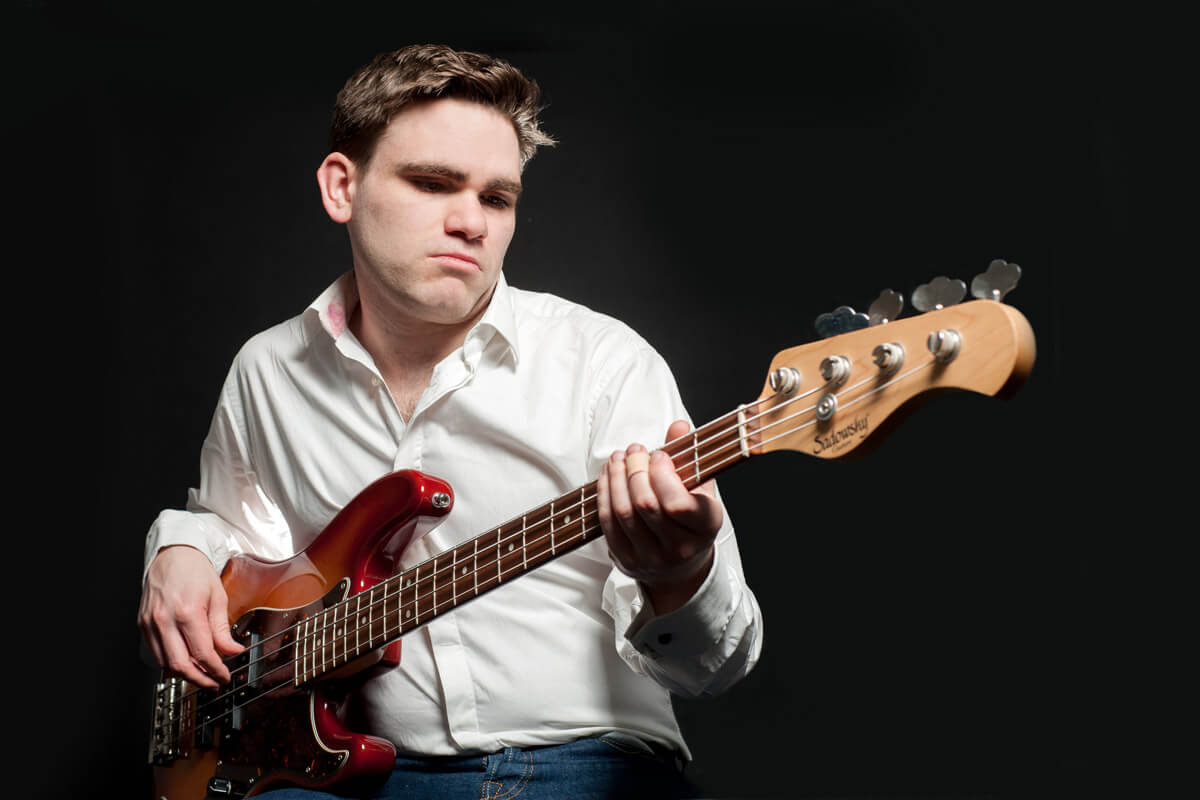Virtually every established artist now has their own YouTube channel through which fans can access videos, live performances and added content, but even for musicians without a colossal fanbase, the globe-conquering video platform can provide a much-needed additional revenue stream.
One way you can do this is by tutoring via your own YouTube channel. Of course, since Covid many musicians have been using Skype or Zoom to teach remotely, either as well as or instead of their in-person sessions. A YouTube channel is one step further on from this and a number of MU members are now using it to enhance or compliment their teaching, monetising the platform and reaching a worldwide audience in the process.
Getting started on YouTube: the setup
You will need: a setting of some sort (ideally a home studio if you have one), a video camera and video editing tech. If you’re just starting out, your smartphone and laptop will suffice. Greg Hagger, a bassist who has been using YouTube for four years now, started out like this. “I started shooting with my iPhone, normal house lights and a dodgy backdrop. I used a black drape. I was seeing what I could do with not much money. Since then, I’ve just gradually added kit. I’ve now got a better camera, lights and a proper video area.”
Do your research and find your USP
As you will quickly find out, YouTube is brimming with musicians performing, reacting, tutoring and generally goofing about. Think about how you could make your channel different to all the others out there. “You’ve got to find your niche and be confident in the way that you teach it,” suggests Hagger. However, it’s important to be flexible, he says. “Initially, I stayed away from common topics like classic rock bass lines because I thought there’s loads of stuff out there. But then I realised that people were asking me for them! So it’s about not being too obsessed with what other educators are doing. Just have a look and find your own voice. Discover what people like about you and do more of that.”
“You’ve got to find your niche and be confident in the way that you teach it” - Greg Hagger
Using YouTube as a marketing tool
You may be under the impression that YouTube pays its content providers through advertising. Sadly, it’s only the big hitters who can earn anything like a decent wage purely from views. “You have to reach a minimum of 1,000 subscribers and 4,000 hours of watch time before you start earning anything and even then it’s just pence,” says Manley O’Connor, a piano tutor. The secret is to use the platform to direct your subscribers to services that you can sell. “I’m not a YouTuber,” insists James Eager, another bass tutor. “YouTube is just one facet of my whole business. I started monetising it by creating online courses and a training programme through membership. The idea is to get a monthly recurring revenue so I can accurately know how much money is coming in.”

“The idea is to get a monthly recurring revenue so I can accurately know how much money is coming in,” says bass tutor James Eager. © Blake Ezra Photography
What to post on YouTube and when
When it comes to deciding how long your videos should be, the YouTube tutors we spoke to said between 5-15 minutes, although the emergence of TikTok has meant average video lengths have been reducing still further. Ultimately, it depends on what point you want to get across. “It’s about having a very clear agenda and communicating that at the start of the video so people are very clear as to what they’re getting into,” says O’Connor. He usually uploads two to three videos a week, although not all the same style. “I vary it. I utilise the shorts feature where I just look at a lick or a blues turn and those just last 30 seconds. So maybe that in combination with a full-length video tutorial and a reaction video or perhaps a video of me just playing. The aim is to keep people engaged and keep things fresh.”
Building an online presence
It takes time to build up an online presence and traction before you can reap any financial benefits. “It’s not a quick fix,” says Greg Hagger. Just as in any other field, he says, you must very consciously play the long game.
 Piano tutor Manley O’Connor says the secret is to use the platform to direct your subscribers to services that you can sell. © Suzanne Wilson
Piano tutor Manley O’Connor says the secret is to use the platform to direct your subscribers to services that you can sell. © Suzanne Wilson
“You have to have a very strong mindset,” says James Eager, “a strong long-term focus and you have to be prepared to constantly educate yourself on what’s going on. One of my mentors said to me, ‘it’s like a diesel locomotive – it takes a long time to get up to speed, but once you get it there it doesn’t take much just to gently keep stoking the boiler’.”
Don’t burn yourself out
It’s easy to reach burn-out in the social media world, as any number of exhausted young ‘influencers’ can testify to. “You have to take care of your mental health and don’t get too consumed by it,” insists O’Connor. “Creating content can take over your life. Also, remember that who you are as an individual is not reflected in the views that you do or don’t get. And don’t dwell on comments of people who don’t like you!”
Remember: it’s a different mindset
It’s also worth remembering that once you step online you are selling yourself. “You’re setting up a business at the end of the day and 95% of business is mindset,” says James Eager. “But the mindset of a musician is very different to that of an entrepreneur. There are certain things that you have to unlearn.”
Greg Hagger concurs: “As musicians we’re perfectionists, so overcoming that was important. I’ve put out videos where the content was good but the shooting and editing skills weren’t great, but you’ve just got to get over that and upload it.”
“It can be quite a challenging thing for many people to transition to,” Eager concludes. “It’s very different to working life in the music industry. But if you’re adaptable there are huge gains on the other side.”